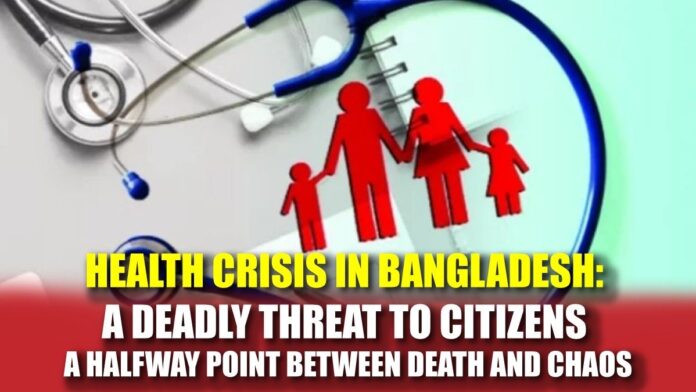Bangladesh’s health sector is drowning in an unprecedented crisis. Just as the country struggled to recover from the shock of the coronavirus pandemic, a new wave of destruction has struck—dengue is ravaging the nation, crippling public health. And it doesn’t end there. Unknown and unfamiliar diseases—names ordinary people have never even heard of—are spreading fast. Yet there is no effective treatment system, no sufficient doctors, no reliable medicine.
In government hospitals, survival depends on sheer luck. Meanwhile, private hospitals have turned into butcher shops—where treatment comes at a sky-high price, far beyond the reach of ordinary families. For the poor and the middle class, the choice is cruel: fight death without treatment, or drown in unbearable expenses.
According to the latest figures from the Health Directorate, the dengue situation is spiraling into catastrophe. In just the last 24 hours, three more people have died. This year alone, the death toll has reached 198. In the same period, 556 new patients were admitted to hospitals. From Barishal to Chattogram, Dhaka to Rajshahi, Mymensingh, Sylhet—cases are rising everywhere.
But this is only the face of one disease. The real question is: is Bangladesh’s health sector at all prepared for this crisis? The grim truth is, everyone knows the answer. Years of mismanagement, corruption, fake and substandard medicine, chronic shortages of doctors, and collapsing hospital systems have pushed the situation beyond control.
The most terrifying reality is this: the current unelected government is not accountable to the people. It shows no sense of urgency, no sense of responsibility. This negligence, this failure, is striking directly at the lives of citizens.
The right to healthcare—a basic human right—is now in grave peril in Bangladesh. Without immediate, decisive action, the death toll from dengue and other diseases will rise into an endless procession. The nation stands on the brink of tragedy.





